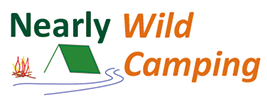Wilder Winter camping in the UK strips the outdoors back to a quieter, more elemental experience. Frosted mornings, long starlit nights and an absence of summer crowds make it uniquely rewarding, but the season also demands respect: shorter daylight hours, colder temperatures and unpredictable weather change the rules of simple overnight trips into a serious, safety-first outing.
Planning and location
Choose locations with shelter and escape routes in mind. Lower valleys, sheltered copses and ridges with leeward pitches reduce wind exposure. Where access rules differ across the UK, always check local guidance and, where required, seek landowner permission. Aim for shorter approaches so you avoid hauling heavy loads over long distances in cold conditions.

Essential kit
Prioritise warmth and shelter. A robust three or four-season tent, an insulated sleeping mat with high R-value and a sleeping bag rated for temperatures lower than you expect are non-negotiable. Layering clothing is key: base, insulating and waterproof outer layers allow quick adjustment as you move between effort and rest. Carry spare gloves, socks and a warm hat stored separately to avoid dampness. A reliable stove and fuel suited to cold weather, plus a wind shield and sturdy cookware make hot food and drinks possible even in freezing conditions.
Campcraft and safety
Site carefully: avoid hollows where cold air pools and places exposed to avalanche risk in upland, snowy terrain. Pitch on durable surfaces to limit environmental impact and stabilise your tent with extra guy lines and buried anchors if needed. Manage condensation by ventilating the tent while minimising heat loss; keep wet kit outside in a waterproof bag. Stay fuel-aware and practice stove use outside the tent to avoid carbon monoxide risk.

Carry navigation tools and plan for limited daylight. Tell someone your route and expected return time and carry spare batteries and a power bank. In snowy or icy terrain, add micro-spikes and an ice axe or crampons as appropriate and know how to use them.
Leave no trace and mindset
Winter amplifies both the landscape’s beauty and its fragility. Pack out all waste, avoid disturbing wildlife, and keep noise and light to a minimum. Accept slower travel and simpler plans: wilder winter camping rewards patience and careful preparation more than pushing limits.
A well-prepared wilder winter camp delivers solitude, clarity and a deeper connection to place. With the right equipment, sensible planning and respect for weather and land, it can be one of the most memorable ways to experience the UK outdoors.

Complete the form to receive our newsletter to follow how Nearly Wild Camping develops. You can unsubscribe at any time.
"*" indicates required fields
We use cookies to enhance your browsing experience, serve personalized content, and analyze our traffic. By clicking "Accept All", you consent to our use of cookies.
We use cookies to improve your experience on our site. You can choose which types of cookies to allow below.
Essential cookies for website functionality and security.
Help us understand how visitors interact with our website to improve performance.
Used to deliver personalized advertisements and track campaign effectiveness.
